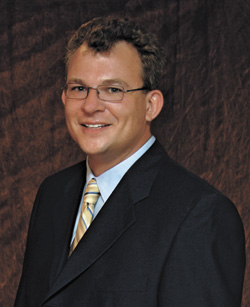Do you have a never-ending schedule full of errands, practices, and appointments? While some of the items on your to-do list can be put off for another day or even another month, your annual dental check-ups should be kept at the top of the list and need to be done regularly every 6 months. There are several reasons why you need to keep those appointments up-to-date, but the main reason is that your teeth are yours for a lifetime. There is no second set of adult teeth coming in later, and there’s no easy, painless, cheap way to replace them. Here, Flintlock Dental will take a deeper look into the other reasons why keeping those dental check-up appointments on the calendar is so important.
What Takes Place at a Dental Check-Up?
Your dental visits will likely be handled in two main parts: an examination and a cleaning. During the examination, your dentist will check for problems such as cavities, stains, and plaque buildup. They will also check the strength of your gums. The overall examination will include checking your throat, tongue, and around your face. This process is done to make sure there is no swelling or other signs of a larger problem going on within the oral cavity.
The other important aspect of your dental visits is getting a deep clean on your teeth. The dental professional will scrape off the plaque and tarter and clean deep between your teeth and on the gums. This deep cleaning and examination of your teeth twice a year is exactly why keeping these visits current is important. Brushing twice a day and flossing are a great way to maintain your oral health, but there are some things that are much more difficult to do at home, like removing tarter buildup and making sure that every corner of the mouth is in good condition. This process needs to be completed by a professional.
Dental Care Between Check-Ups
Plaque is constantly building up on your teeth. This is a major reason why it’s so important to keep up with good oral health practices between your dental visits. Here are a few ways you can keep your teeth healthy between check-ups:
- Brush your teeth thoroughly twice a day. Use an electric toothbrush for more efficiency.
- Use the correct toothpaste for your teeth and make sure there is fluoride in the paste. Normal toothpaste works fine for most people, but some people benefit from using prescription toothpaste.
- Floss your teeth once a day after brushing. This will keep food and bacteria from settling between your teeth and creating larger problems for you later. A water pick helps many people ensure that they’re flossing right.
- If you want to use mouthwash to freshen your breath, find a non-alcoholic variety.
Daily brushing and flossing of your teeth is the best way to keep your oral health in check on your own and keep your dental check-ups quick and easy.
Habits that are Bad for Dental Health
While we discuss your oral health and why twice-a-year dental check-ups are important, it’s also important to note some of the things that people tend to do between their dental visits that are not so good for teeth.
Brushing Too Hard - This might make you think that you’re really brushing your teeth well, but brushing too hard will actually do more damage than good over time. It will wear down your enamel and weaken your gums. It’s best to use a softer bristled toothbrush and gently brush for a full 2 minutes at each session rather than dig in deep with a rough brush.
Using the Wrong Products - Make sure that you’re using a soft-bristle toothbrush and floss to clean your teeth every day. Don’t reach for things like sticks, paper clips, or even toothpicks to clean in between your teeth. These items lead to gum damage and other problems.
Avoiding Regular Dental Care - Skipping out on your annual check-ups can lead to larger problems later. Getting your annual cleaning helps you and your dentist make sure your teeth and gums stay healthy. Even if you think your teeth are clean, go to those check-ups every time!
Chewing on Hard Objects - Chewing on pens, pencils, ice, hard candies, or other hard objects damages your teeth over time. This habit causes tiny, microscopic fractures in the tooth enamel, which will become a much bigger problem after years of misuse.
Grinding Your Teeth – It can be difficult to stop grinding your teeth, especially if it’s a problem when you sleep, but there are things you can do to fix the problem. Talk to your dentist at your next visit if you think you’re suffering from bruxism (tooth grinding).
There are many other habits you may have that are bad for your teeth, but the ones listed above are the most common issues that arise. You should also reduce your tobacco use and how much soda and sugary drinks you consume. These things in excess combined with improper teeth cleaning can lead to stains, decay, and even the loss of your teeth.
Maintaining good daily habits are just as important a part of your oral health as getting to those annual check-ups. Scheduling and keeping those two dental visits a year will help ensure that your teeth are clean, healthy, and clear of any larger dental issues. But nothing replaces daily care. Should you have a larger issue arise at your check-up, it will have been caught earlier and can be more easily treated.
